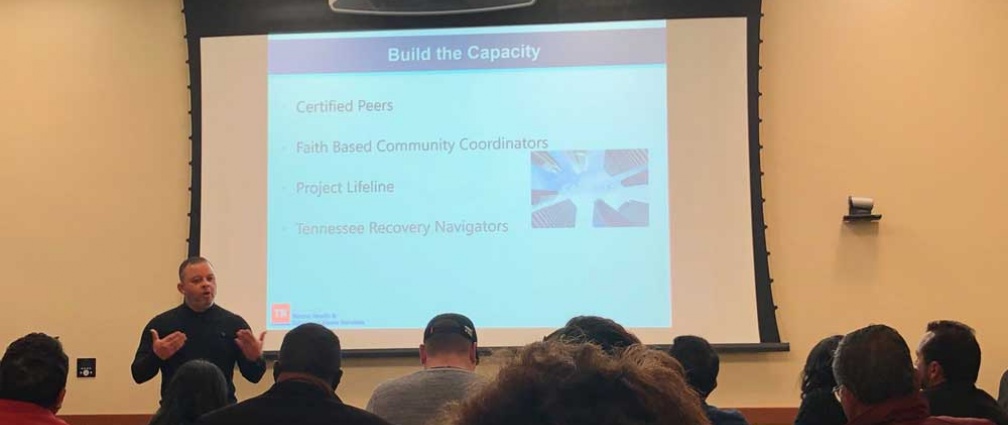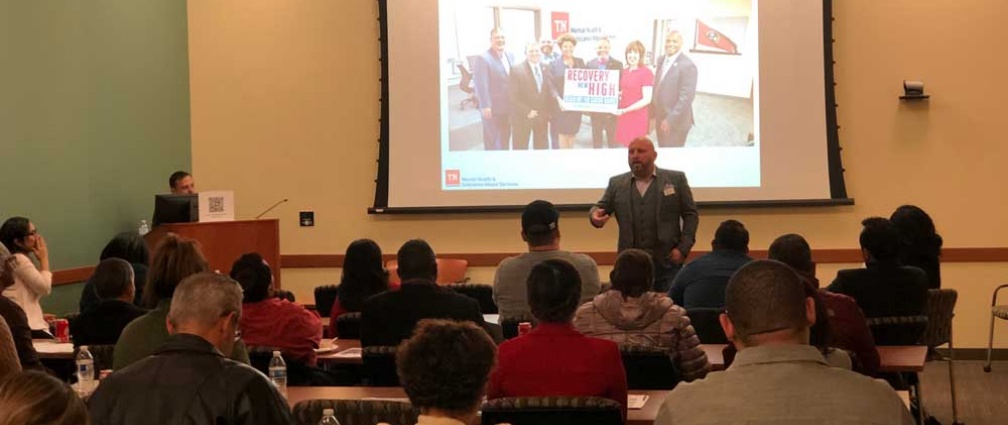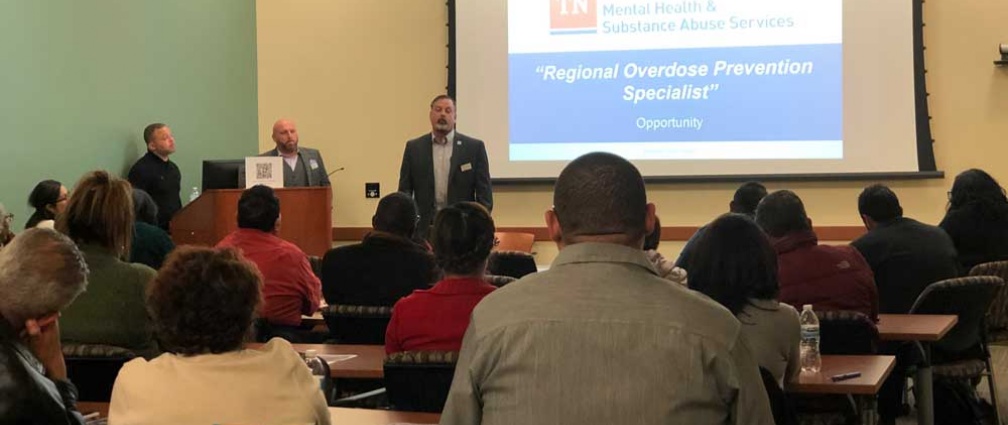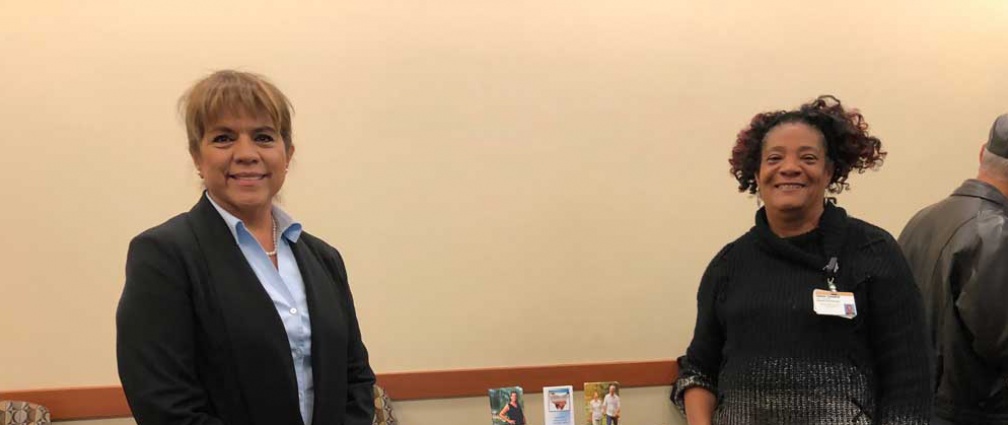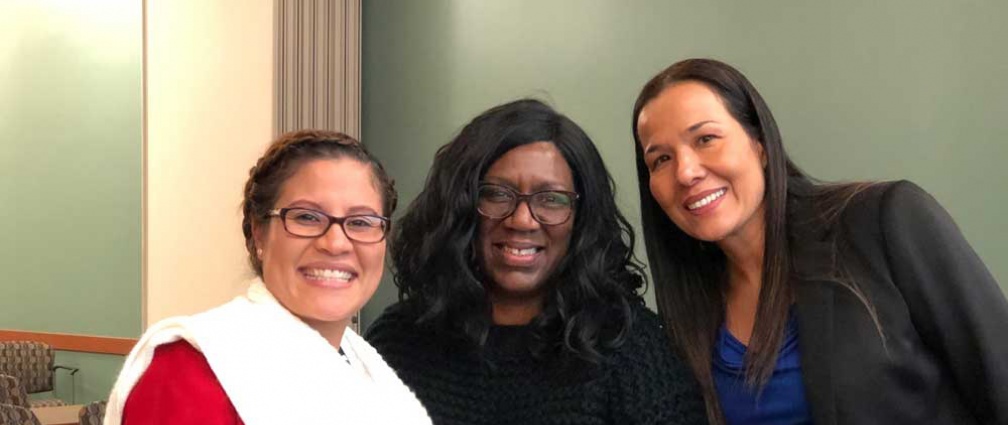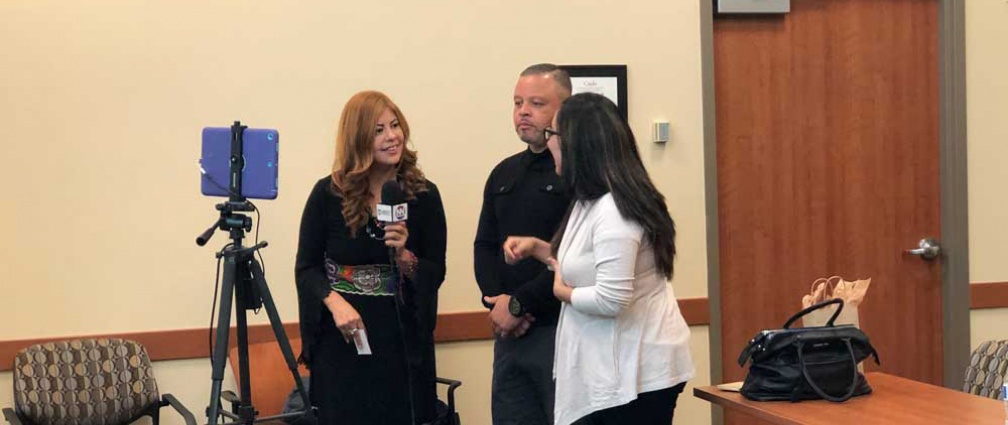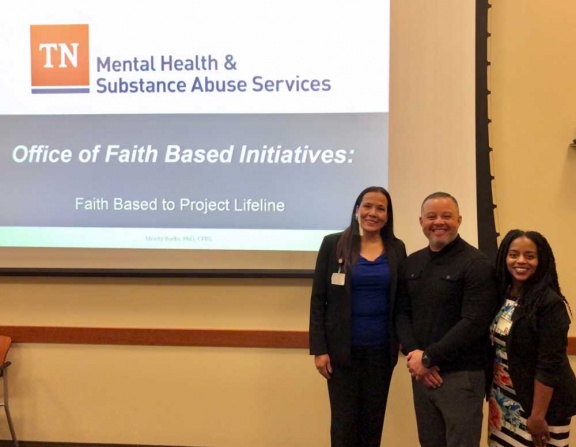NASHVILLE, Tenn. “The opposite of addiction is connection,” Monty Burks, PhD., State Director of Faith-Based Initiatives for the Tennessee Department of Mental Health & Substance Abuse Services professed to a room full of faith leaders. “The opposite of addiction is connection.”
'Substance abuse and addiction'
On Thursday, November 14, 2019, the Faith and Health Collaborative -- an interdisciplinary coalition of faith leaders organized by the Meharry-Vanderbilt Alliance (MVA) -- joined forces with the Vanderbilt-Ingram Cancer Center (VICC), the Nashville Health Disparities Coalition and the Tennessee Department of Mental Health & Substance Abuse Services to talk "substance abuse and addition." In particular, the group aimed to inform faith leaders of the impact of the ‘Opioid Crisis’ in Middle Tennessee, the initiatives in place to address the issue and the resources and trainings available to faith leaders across the state, with the main goal of helping individuals suffering from addiction reach recovery.
The two-hour long interfaith workshop was held at the One Hundred Oaks location of Vanderbilt Health.
'Empower and equip'
To open the workshop, Jacquelyn Favours, MPH, Program Manager at the MVA and organizer of the Faith & Health Collaborative, welcomed the 40-plus attendees by sharing the Faith & Health Collaborative's purpose and mission alongside Claudia Barajas, VICC Community Engagement Manger. “We want to empower and equip faith leaders to better address health priorities in their congregations and communities, Favours explained.
Rev. Luis Sura, President of Better Options and Outreach Pastor of Franklin Community Church, provided an invocation, as food was served from Two Peruvian Chefs In A Truck catering service.
Journeys to recovery
The majority of the workshop allowed Dr. Burks and two members of his staff -- Jamie Harper, CPRS, a Faith-Based Community Coordinator of Middle Tennessee, and William Taylor, a Project Lifeline Coordinator -- to discuss the purpose of their work through personal experience and testimony.
Each presenter had, at one point in his life, battled addiction, and they related their journeys to recovery. “We need success stories from the pews of our sanctuaries,” Harper expressed.
Harper had attended church for many years in his youth, even after beginning to use, a story, he relates to many he now seeks to help get to recovery. After learning that his own church leaders didn't help him in his youth because, “…they didn’t know how, where to begin, or what to do," Harper now works with congregations to equip them with resources to provide individuals suffering from addiction with the help they need.
'Part of an amazing body that does amazing work'
Dr. Burks went on to explain why churches and faith leaders are the answer to the addiction crisis in Tennessee: “There are 12,163 faith institutions across Tennessee ... I love you all. we are part of an amazing body that does amazing work,”
The TN Department of Mental Health & Substance Abuse Services is offering to work with places of worship to provide resources and training in substance abuse and addiction.
Call to action
Following the presentation, Cynthia Jackson, PhD, of Matthew Walker Comprehensive Health Center and Co-Chair of the Nashville Health Disparities Coalition, facilitated a Q&A session. Headsets for simultaneous translation in Spanish were provided courtesy of the Vanderbilt Kennedy Center, while Johana Marcela Pinilla conducted the interpretation.
As a final call to action, Dr. Burks wanted to make clear that substance abuse and addiction are not limited to the Opioid Crisis. They affect the entire community, from lost wages, loss of labor force and especially the lives of young people,
“We need to move beyond the language of moral failure (with addiction) ... We need to understand what addiction is ... view addiction by its definition, as a treatable disease," he challenged.
About the Meharry-Vanderbilt Alliance
Founded in 1999, the Alliance bridges the institutions of Meharry Medical College and Vanderbilt University Medical Center. Its mission is to enrich learning and advance clinical research in three primary areas -- community engagement, interprofessional education and research -- by developing and supporting mutually beneficial partnerships between Meharry Medical College, Vanderbilt University Medical Center and the communities they serve. Through community engagement, the Alliance serves a large community of stakeholders including surrounding universities and colleges, community organizations, faith-based outlets and community health centers. Its interprofessional education enhances students' interdisciplinary understanding and improves patient outcomes through integrated care. The research conducted provides access to experienced grant writers and materials supporting the grant application process and facilitates grant-writing workshops.
